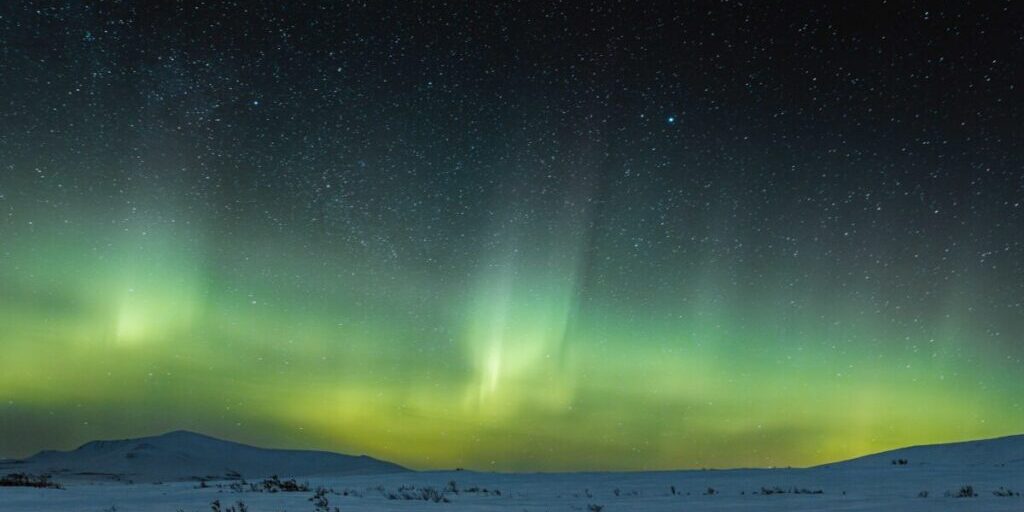The National Oceanic and Atmospheric Administration (NOAA) has announced a Severe (G4) Geomagnetic Storm Watch, the first such alert since January 2005. This significant solar event is expected to bring strong displays of the northern lights to regions rarely touched by the phenomena. According to NOAA, the storm has the potential for the aurora to be seen as far south as Northern California and Alabama. NOAA expects the event to begin Friday, May 10 and continue through Sunday, May 12.
Sunset in Nome is expected to be around midnight, however total darkness is not possible this time of year. For the best chance to see the lights in near-dark conditions, observers may wait until 1:30 a.m. when nautical twilight is expected to begin. Nautical twilight will end around 4:30 a.m. Clear skies are expected throughout the evening.
Geomagnetic storms are disruptions in Earth’s magnetosphere caused by changes in the solar wind that affect the plasma and magnetic field in the space surrounding Earth. These storms result from major eruptions on the sun’s surface, such as solar flares and coronal mass ejections (CMEs). These eruptions release huge quantities of particles into space that travel towards Earth, colliding with the magnetic field. At time of writing, NOAA reported at least seven CMEs transiting towards Earth.
The G4 classification by NOAA indicates that the geomagnetic storm has the potential to disrupt satellite operations, affect radio communications, and even cause voltage irregularities in power grids. If you experience interruptions to your KNOM radio signal please report them by calling the station or sending a message to @knomradio on social media.







